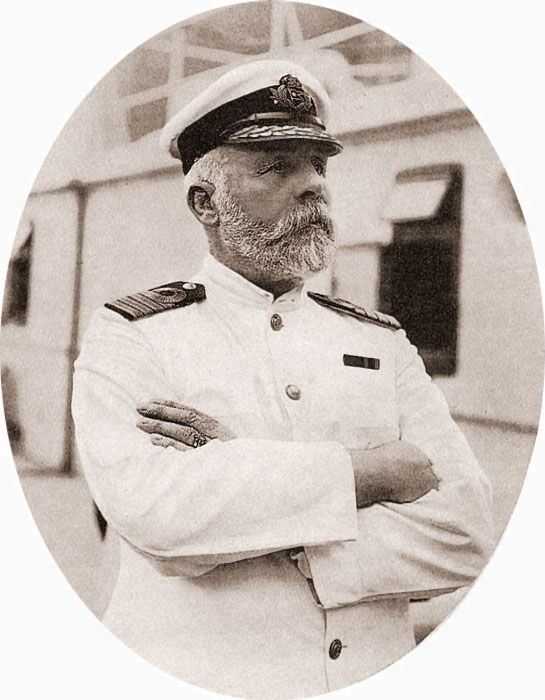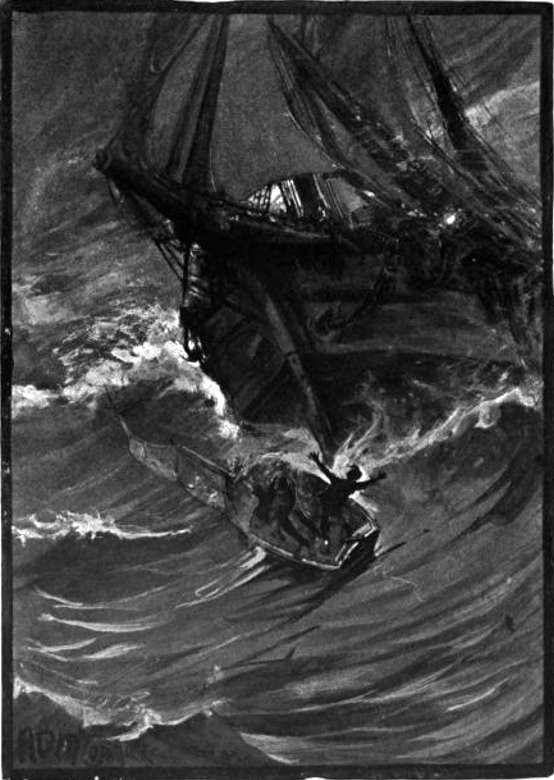|
Custom Of The Sea
A custom of the sea is a custom that is said to be practiced by the officers and crew of ships and boats in the open sea, as distinguished from maritime law, which is a distinct and coherent body of law that governs maritime questions and offenses. Among these customs is the practice of cannibalism among shipwrecked survivors, by the drawing of lots to see who is to be killed and eaten so that the others might survive. Historical examples of "agreed" cannibalism Saint Christopher case In the early 17th century, seven Englishmen in the Caribbean embarked on an overnight voyage from Saint Christopher Island, but were blown out to sea and lost for 17 days. During this time, starving, they cast lots to see who would sacrifice his own life for the others. The lot fell to the man who had suggested the scheme, and he consented to his subsequent killing. His body sustained the rest until they made their way to Saint Martin. They were returned to Saint Christopher where they were put on ... [...More Info...] [...Related Items...] OR: [Wikipedia] [Google] [Baidu] |
Custom (law)
A legal custom is the established pattern of behavior that can be objectively verified within a particular social setting. A claim can be carried out in defense of "what has always been done and accepted by law". Customary law (also, consuetudinary or unofficial law) exists where: #a certain legal practice is observed and #the relevant actors consider it to be an opinion of law or necessity ('' opinio juris''). Most customary laws deal with ''standards of the community'' that have been long-established in a given locale. However, the term can also apply to areas of international law where certain standards have been nearly universal in their acceptance as correct bases of action – for example, laws against piracy or slavery (see ''hostis humani generis''). In many, though not all instances, customary laws will have supportive court rulings and case law that have evolved over time to give additional weight to their rule as law and also to demonstrate the trajectory of evolu ... [...More Info...] [...Related Items...] OR: [Wikipedia] [Google] [Baidu] |
Necessity (criminal Law)
In the criminal law of many nations, necessity may be either a possible justification or an exculpation for breaking the law. Defendants seeking to rely on this defense argue that they should not be held liable for their actions as a crime because their conduct was ''necessary'' to prevent some greater harm and when that conduct is not excused under some other more specific provision of law such as self defense. As a matter of political expediency, states usually allow some classes of person to be excused from liability when they are engaged in socially useful functions but intentionally cause injury, loss or damage. For example, a drunk driver might contend that they drove their car to get away from being kidnapped (cf. ''North by Northwest''). Most common law and civil law jurisdictions recognize this defense, but only under limited circumstances. Generally, the defendant must affirmatively show (i.e., introduce some evidence) that (a) the harm they sought to avoid outweigh ... [...More Info...] [...Related Items...] OR: [Wikipedia] [Google] [Baidu] |
Women And Children First
''Women and Children First'' is the third studio album by American Rock music, rock band Van Halen, released on March 26, 1980, on Warner Bros. Records. Produced by Ted Templeman and engineered by Donn Landee, it was the first Van Halen album not to feature any cover songs, and is described by critic Stephen Thomas Erlewine as "[the] record where the group started to get heavier, both sonically and, to a lesser extent, thematically." Background and recording The opening track, "And the Cradle Will Rock..." begins with what sounds like a guitar, but is, in fact, a phaser (effect), phase shifter-effected Wurlitzer electric piano played through Eddie Van Halen's 1960s model 100-watt Marshall Amplification, Marshall ''Plexi'' amplifier. Like the two preceding albums, ''Women and Children First'' was recorded in Hollywood at Sunset Sound Recorders, Sunset Studios, in about two weeks' time. The album is a progression, though, in that it features more studio Overdubbing, overdubs and ... [...More Info...] [...Related Items...] OR: [Wikipedia] [Google] [Baidu] |
The Captain Goes Down With The Ship
"The captain goes down with the ship" is a maritime tradition that a sea captain holds ultimate responsibility for both their ship and everyone embarked on it, and in an emergency will either save those on board or die trying. Although often connected to the sinking of RMS ''Titanic'' in 1912 and its captain, Edward J. Smith, the tradition precedes ''Titanic'' by at least 11 years. In most instances, captains forgo their own rapid departure of a ship in distress, and concentrate instead on saving other people. It often results in either the death or belated rescue of the captain as the last person on board. History The tradition is related to another protocol from the nineteenth century: "women and children first". Both reflect the Victorian ideal of chivalry, in which the upper classes were expected to adhere to a morality tied to sacred honor, service, and respect for the disadvantaged. The actions of the captain and men during the sinking of in 1852 prompted praise from many ... [...More Info...] [...Related Items...] OR: [Wikipedia] [Google] [Baidu] |
Mutiny
Mutiny is a revolt among a group of people (typically of a military, of a crew or of a crew of pirates) to oppose, change, or overthrow an organization to which they were previously loyal. The term is commonly used for a rebellion among members of the military against an internal force, but it can also sometimes mean any type of rebellion against any force. Mutiny does not necessarily need to refer to a military force and can describe a political, economic, or power structure in which there is a change of power. During the Age of Discovery, mutiny particularly meant open rebellion against a ship's captain. This occurred, for example, during Ferdinand Magellan's journeys around the world, resulting in the killing of one mutineer, the execution of another, and the marooning of others; on Henry Hudson's ''Discovery'', resulting in Hudson and others being set adrift in a boat; and the notorious mutiny on the ''Bounty''. Penalty Those convicted of mutiny often faced capital punis ... [...More Info...] [...Related Items...] OR: [Wikipedia] [Google] [Baidu] |
Man Overboard
"Man overboard!" is an exclamation given aboard a vessel to indicate that a member of the crew or a passenger has fallen off of the ship into the water and is in need of immediate rescue. Whoever sees the person's fall is to shout, "Man overboard!" and the call is then to be reported once by every crewman within earshot, even if they have not seen the victim fall, until everyone on deck has heard and given the same call. This ensures that all other crewmen have been alerted to the situation and notifies the officers of the need to act immediately to save the victim. Pointing continuously at the victim may aid the helmsman in approaching the victim. Causes A person may fall overboard for any number of reasons: they might have been struck by one of the ship's booms, they may have lost their footing on a slippery deck or while climbing the ship's ratlines, they may have deliberately jumped overboard in a suicide attempt, or any number of other reasons. Falling overboard is one of ... [...More Info...] [...Related Items...] OR: [Wikipedia] [Google] [Baidu] |
Barratry (admiralty Law)
In admiralty law, barratry is an act of gross misconduct committed by a master or crew of a vessel resulting in damage to the vessel or its cargo. These activities may include desertion, illegal scuttling, theft of the ship or cargo, and any act carried out against the best interests of the shipowner. As barratry is considered misconduct against the shipowner (or demise charterer), who is the only party having standing to sue for damages, any affected owners of cargo must normally bring claims against the shipowner (or demise charterer) for breach of contract of carriage to receive compensation. Description Barratry is defined in the Marine Insurance Act 1906 as "every wrongful act wilfully committed by the master or crew to the prejudice of the owner, or, as the case may be, the charterer" and thus usually considered a crime against the ship's owner. Therefore, if the owner himself chooses to wreck the ship, no crime is committed, as the owner has simply destroyed his own prope ... [...More Info...] [...Related Items...] OR: [Wikipedia] [Google] [Baidu] |
Harpoon (2019 Film)
''Harpoon'' is a 2019 Canadian horror comedy film written and directed by Rob Grant. The film stars Munro Chambers, Emily Tyra, and Christopher Gray, and is about three best friends who become stranded on a yacht in the middle of the ocean. It premiered at the Rotterdam International Film Festival on January 24, 2019, and played at several film festivals, including the Calgary Underground Film Festival, where it won the audience award. It was theatrically released on October 4, 2019. Plot Jonah, an unlucky, down and out twenty-something, is best friends with wealthy but violently unstable Richard. One morning Richard ambushes and brutally beats the unsuspecting Jonah, because he suspects that Jonah has slept with his girlfriend, Sasha. Sasha arrives and pulls Richard away, explaining that suspicious texts Richard found on her phone were actually her and Jonah planning to buy him a speargun for his birthday. Richard feels guilty and, to apologize, takes the two for a day trip on ... [...More Info...] [...Related Items...] OR: [Wikipedia] [Google] [Baidu] |
Yann Martel
Yann Martel, (born 25 June 1963) is a Canadian author who wrote the Man Booker Prize–winning novel ''Life of Pi'', an international bestseller published in more than 50 territories. It has sold more than 12 million copies worldwide and spent more than a year on the bestseller lists of the ''New York Times'' and ''The Globe and Mail'', among many other best-selling lists. ''Life of Pi'' was adapted for a movie directed by Ang Lee, garnering four Oscars including Best Director and winning the Golden Globe Award for Best Original Score. Martel is also the author of the novels ''The High Mountains of Portugal'',Knopf Canada: The High Mountains of Portugal Penguin Random House site. Retrieved 24 March 2016.Charles, Ron (21 January 2016 [...More Info...] [...Related Items...] OR: [Wikipedia] [Google] [Baidu] |
Life Of Pi
''Life of Pi'' is a Canadian philosophical novel by Yann Martel published in 2001. The protagonist is Piscine Molitor "Pi" Patel, an Indian boy from Pondicherry, India who explores issues of spirituality and metaphysics from an early age. He survives 227 days after a shipwreck while stranded on a lifeboat in the Pacific Ocean with a Bengal tiger which raises questions about the nature of reality and how it is perceived and told. The novel has sold more than ten million copies worldwide. It was rejected by at least 5 London publishing houses before being accepted by Knopf Canada, which published it in September 2001. The UK edition won the Man Booker Prize the following year. It was also chosen for CBC Radio's ''Canada Reads'' 2003, where it was championed by author Nancy Lee. The French translation ''L'Histoire de Pi'' was chosen in the French CBC version of the contest ''Le Combat des livres'', where it was championed by Louise Forestier. The novel won the 2003 Boeke Prize ... [...More Info...] [...Related Items...] OR: [Wikipedia] [Google] [Baidu] |
The Narrative Of Arthur Gordon Pym Of Nantucket
''The Narrative of Arthur Gordon Pym of Nantucket'' (1838) is the only complete novel written by American writer Edgar Allan Poe. The work relates the tale of the young Arthur Gordon Pym, who stows away aboard a whaling ship called the ''Grampus''. Various adventures and misadventures befall Pym, including shipwreck, mutiny, and cannibalism, before he is saved by the crew of the ''Jane Guy''. Aboard this vessel, Pym and a sailor named Dirk Peters continue their adventures farther south. Docking on land, they encounter hostile black-skinned natives before escaping back to the ocean. The novel ends abruptly as Pym and Peters continue toward the South Pole. The story starts out as a fairly conventional adventure at sea, but it becomes increasingly strange and hard to classify. Poe, who intended to present a realistic story, was inspired by several real-life accounts of sea voyages, and drew heavily from Jeremiah N. Reynolds and referenced the Hollow Earth theory. He also drew from h ... [...More Info...] [...Related Items...] OR: [Wikipedia] [Google] [Baidu] |
Edgar Allan Poe
Edgar Allan Poe (; Edgar Poe; January 19, 1809 – October 7, 1849) was an American writer, poet, editor, and literary critic. Poe is best known for his poetry and short stories, particularly his tales of mystery and the macabre. He is widely regarded as a central figure of Romanticism in the United States, and of American literature. Poe was one of the country's earliest practitioners of the short story, and considered to be the inventor of the detective fiction genre, as well as a significant contributor to the emerging genre of science fiction. Poe is the first well-known American writer to earn a living through writing alone, resulting in a financially difficult life and career. Poe was born in Boston, the second child of actors David and Elizabeth "Eliza" Poe. His father abandoned the family in 1810, and when his mother died the following year, Poe was taken in by John and Frances Allan of Richmond, Virginia. They never formally adopted him, but he was with them well ... [...More Info...] [...Related Items...] OR: [Wikipedia] [Google] [Baidu] |





